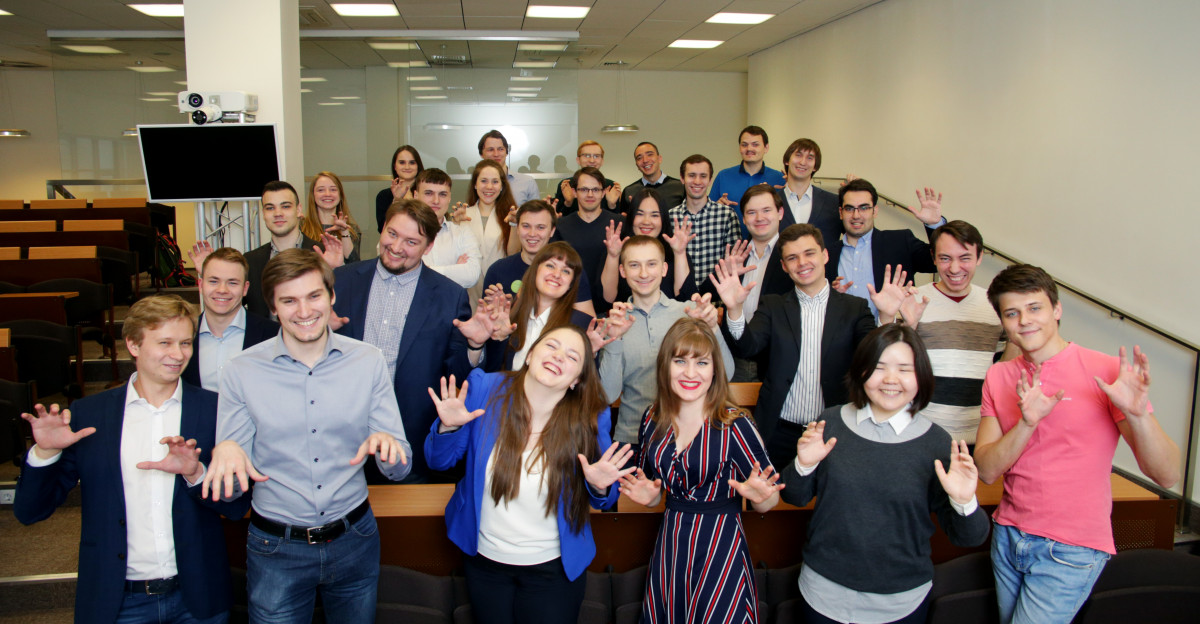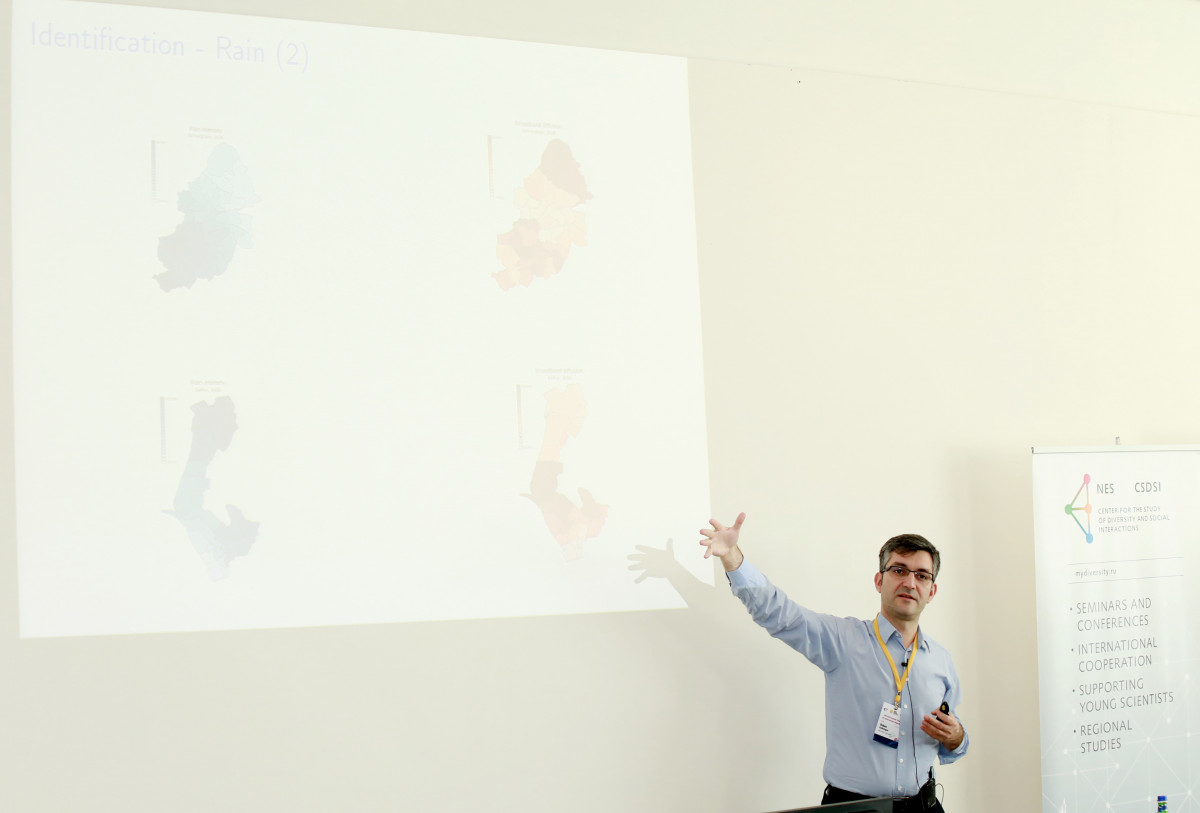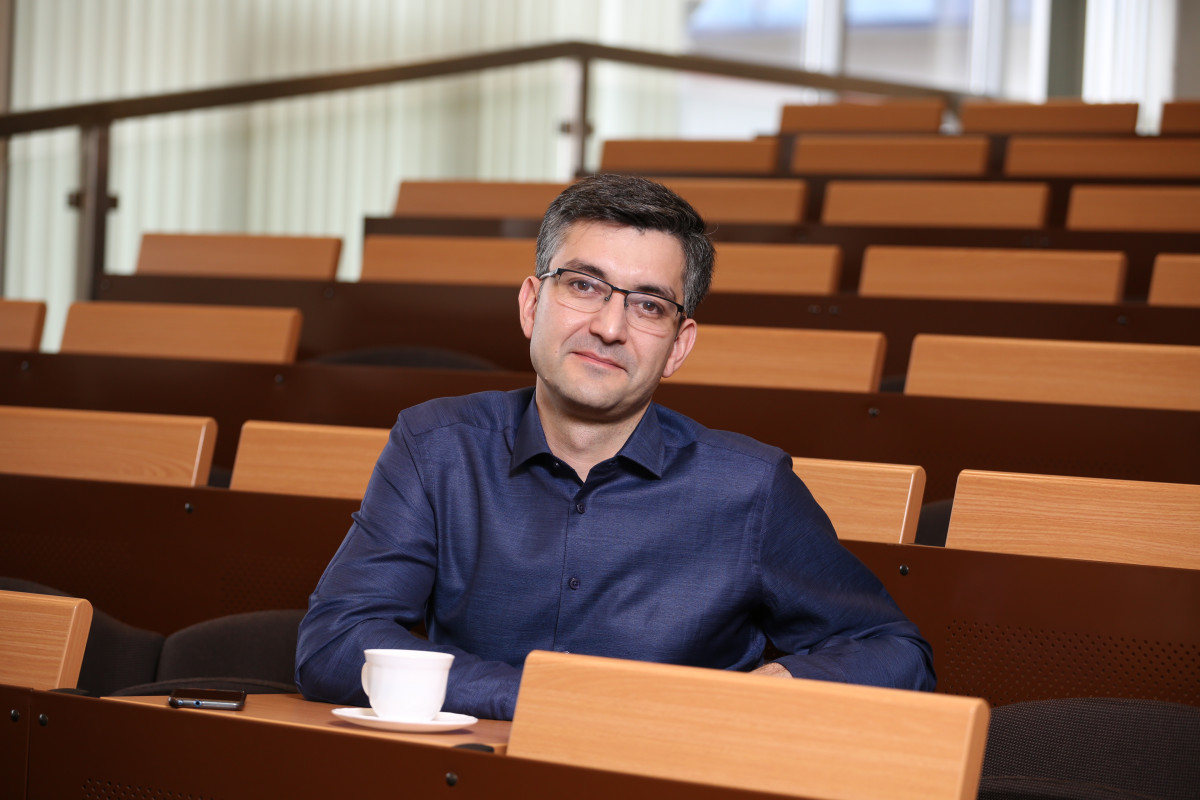“We will continue perfecting our education programs”
A year ago, when taking office, you said that you would focus on three strategic goals – academic excellence, financial stability and strengthening of the alumni role in NES life. What did you manage to achieve, so far?
We worked at all these fields getting different results in each of them. The most remarkable change was in our alumni relations – thanks to them, graduates’ involvement in NES activities raised significantly. And these are only first steps.
Academic sector also advances quite well. Starting from September 2018, three new professors joined NES – Darya Dzyabura, Konstantin Egorov and Gerhard Toews. Besides, this spring, we hired one more team member – a NES graduate Sergey Kovbasyuk (MAE’2006) – for the position of Professor of Finance. We are especially glad that professor Dzyabura finally decided to move to NES from Leonard N. Stern School of Business at New York University. Currently, she leads a joint program Masters in Economics and Data Science of NES and Yandex School of Data Analysis.
Financial results are satisfactory as well. We are capable of covering operational costs and are not facing any problems with maintenance of status quo. However, for now, we haven’t implemented any fundamental changes which we are willing to achieve – for instance, strengthening of endowment fund or means’ acquisition in order to launch new developments.
Which projects had you attracted alumni to?
First, last year, in December, we elected Alumni Council under the Rector. It unites nine members and works quite actively. Let me give you some examples.
Our graduate Ilya Zharov (MiF’2011) took a position of NES Development Director.
In May 2019, we organized an alumni trip to Stanford and Silicon Valley. One of its goals was to promote entrepreneurship within the community. As a result of this tour, a new Venture Club emerged. It is a very interesting association – potential investors and potential start uppers who are seeking financial support. I hope that soon we will all hear more about the Club.
This year, our alumni assisted with external audit of the education program “Finance, Investment, Banks” education program. Their perspective is very valuable for us. Besides, NES alumni take part in developing of corporate education programs and in creating of NES endowment fund strategy. So, I believe, we have a very productive cooperation. We do hope that the number of alumni associations and their fellows will raise in the future.
What goals for this academic year do you have?
We continue attracting partners and financing for new projects, including creation of new research centers. In terms of education, we certainly will further improve our programs in order to guarantee that they are up-to-date and fit the world’s best standards. In 2019-2020, we are planning to process an audit of our flagman program “Master in Economics”. Moreover, we will concentrate our efforts on the development of the new program Masters in “Economics and Data Science”.
We are intending to expand our relations with NES community. For instance, on September 28-29, 2019 a big NES Alumni Reunion in London is taking place. It is focused on alumni living outside Russia. NES friends&alumni from academia (Sergey Guriev from Sciences Po Institute of Political Studies, Anna Pavlova from London Business School) and from business sector (i.e. Alexander Gerko from XTX Markets, Olga Kotsur from Mercaux, and NES Board member Petr Aven) will participate. The Reunion will gather former fellow students and give them opportunity to meet NES friends from different professional spheres.
This year a new SKOLKOVO-NES Center for Research in Financial Technologies and Digital Economy was launched. What will be its area of activities? Will any new research centers emerge in the near future?
The Skolkovo-NES Financial Center led by NES Professor Oleg Shibanov will focus on applied research in the fields associated with digital economy, fintech and other similar themes. It’s important that this research will involve serious academic approaches and will do studies relevant for business purposes.
We intend to open similar centers – we already have several potential projects in mind, both applied and of merely academic nature. For instance, we are going to develop a data analysis field as we have a joint program with Yandex, which provides us with the necessary expertise. But the implementation of these projects will only be possible if we manage to find partners willing to support such centers.
How do you evaluate the 2019 enrollment campaign results?
I find them very positive. We managed to attract almost 20 percent more students than in 2018 and didn’t have to lower our passing grade. The number of students of our bachelor degree programs stayed the same, which can be considered as a success, considering an increase in competition.
Last year, NES launched a series of open lectures series - NES Economic Lectorium. Are you planning to continue this project?
Yes, we view this project as a successful one, it is very popular among the audience. Sometimes the venue couldn’t even fit all the interested people who came to the event. Two series of lectures are already announced this autumn. The first one is dedicated to the concept of economic science and career opportunities, which are open to professionals in the academic world, entrepreneurship and corporations. The second track will be devoted to the issue of gender inequality. In spring 2020, we will go on with our lectures but the topic isn’t fixed yet.
“Rector has to stay an active scientist”
Do you manage to combine administrative work with scientific research?
Yes, surprisingly, I do. I am always trying to find a balance between both areas and look for short time slots when I can do scientific activities. I am pretty sure that in order to be a rector of a school with a leading academic position you have to stay a scientist yourself. Otherwise, it would be very easy to lose your expertise and turn into a “shoemaker who goes barefoot”.
Which academic projects are you working on at the moment?
The most important theme for me now is how social media influence different aspects of life. My new article on the theme is coming out soon, another one is close to publication. Moreover, another important project is in the phase of results’ analysis already and soon will be finished. Besides, jointly with my usual coauthors Maria Petrova and Ekaterina Zhuravskaya, we are completing a review article on the influence of the internet and social media on political process. We also have projects on other topics – for instance, me and my former classmate at NES Sergey Mityakov are currently studying how political ties with Moscow government, in the beginning of 2000’s, helped to evade taxes.
What do you think of the challenges, which education institutions are facing today? How actively are new technologies being implemented and how does it influence the labor market?
Abroad, replacement of human workers by robots in the areas requiring routine mechanic operations (both manual and intellectual) is going very quickly. And, in the coming years, when AI technologies develop more it is likely to gather pace. In Russia, these changes occur much slower than in other countries, unfortunately. But this doesn’t mean we should harbor illusions that we are going to avoid this transformation. In Russia, we are using the same technologies and, finally, even with a short delay, machines will replace humans in several professions.
Which professions will be in demand in future?
Robots can be used by routine operations, which are easy to organize and are made repeatedly. So, humans will perform tasks requiring nonstandard skills – creative thinking, critical reasoning, setting the questions etc. Besides, professions associated with interpersonal communication will also be in demand.
How does the education role change in this situation? What kind of competences and skills do higher education institutions have to deliver?
We have to acknowledge that the old model when people learned some profession, graduated from the university and, then, practiced it until the retirement is not relevant any more. Everything is changing very fast. And people will have to change several professions during their working life.
So, general education model is also evolving. First, students have to get a fundamental education providing them with skills, how to learn and enabling them to form an individual career. And later on, people will have to keep on learning constantly – for instance, by specific cases – and adjusting their education to professional requirements they are currently facing.
What is NES doing to follow these trends?
At NES, we have different education levels and they all are embedded in the new reality’s requirements. The HSE-NES Joint Program in Economics (Bachelor of Arts in Economics), in our view, implements an archetypical approach to basic and fundamental education. The program is based on the liberal arts model common in other countries. This means that students have broad opportunities to select courses of different specializations, and all of them are providing them with an in-depth knowledge. We deliberately deliver our students a diverse education and this distinguishes NES from other Russian universities. We believe that in future people would need a broad competences spectrum necessary for making career choices.
At a master level, students usually have specific vision of what they are willing to do. The education system at NES is structured in a way in order to train students how to learn. We have a very intensive program, an academic year is divided into five modules with five exam sessions, accordingly. Sometimes it happens that the semester break is only one day long. This context is similar to a real-life situation which employees are facing in their work routine. The students who survive our Master program in Economics are very well prepared to an intensive work in a changing environment and will be able to learn and develop, in future.
Ability to intensive learning is an important meta-skill, which is necessary for obtaining a second higher education, for example. This level is represented by NES program Master in Finance. It enables students who already have experience in finance and economics to change their development trajectory – to shift career focus or to change their entire specialization, for instance, if their profession doesn’t exist anymore.
Which economists are especially in demand on the labor market?
We observe two main tendencies. First, demand for economists with competences in data analysis and AR technologies etc. Now companies are developing these areas, which makes IT professionals very demanded. But in the near future people who are capable of applying these technologies in practice will be needed. The economists of the future must not only understand economic and financial questions but also be able to apply the new methodology.
Second, the understanding of fundamental economic laws becomes even more important. In the world, where highly specialized and applied knowledge becomes obsolete very fast, a good education base can help adapt to the changing circumstances.




